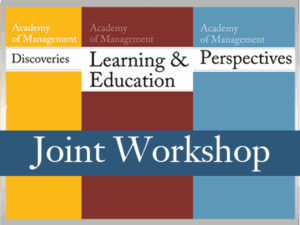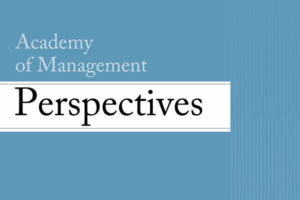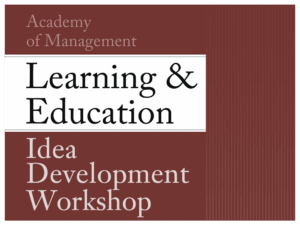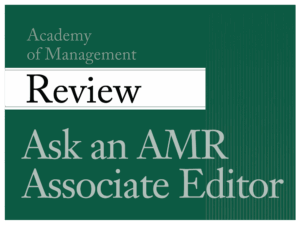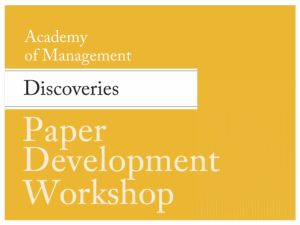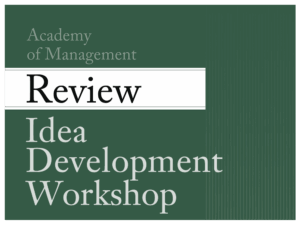Journal Workshops
Journal workshops are designed to provide authors with guidance and expertise in the development of their manuscript for potential submission to an Academy journal.
The workshops include general presentations about the individual journal by members of that journal’s editorial team, as well as roundtable discussions that focus on providing authors with practical and developmental feedback aimed at strengthening and improving their papers. The workshops are open to all Academy members, as well as non-members.
Some portions of these workshops may be photographed or videotaped for potential promotion that AOM may create on behalf of the publications. If you have concerns about potentially appearing as a participant in the photographs and/or videos and would like to opt out, please email Susan Zaid within one week of the workshop date to let us know your concern. If you choose to opt out, please also send us your picture so we know who to block from the photos and/or video. If we do not hear from you, we will assume that you are comfortable with potential inclusion in this regard.
